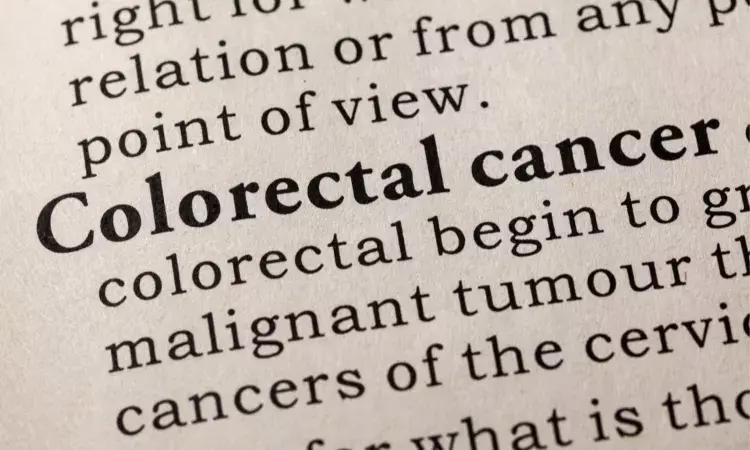- Home
- Medical news & Guidelines
- Anesthesiology
- Cardiology and CTVS
- Critical Care
- Dentistry
- Dermatology
- Diabetes and Endocrinology
- ENT
- Gastroenterology
- Medicine
- Nephrology
- Neurology
- Obstretics-Gynaecology
- Oncology
- Ophthalmology
- Orthopaedics
- Pediatrics-Neonatology
- Psychiatry
- Pulmonology
- Radiology
- Surgery
- Urology
- Laboratory Medicine
- Diet
- Nursing
- Paramedical
- Physiotherapy
- Health news
- Fact Check
- Bone Health Fact Check
- Brain Health Fact Check
- Cancer Related Fact Check
- Child Care Fact Check
- Dental and oral health fact check
- Diabetes and metabolic health fact check
- Diet and Nutrition Fact Check
- Eye and ENT Care Fact Check
- Fitness fact check
- Gut health fact check
- Heart health fact check
- Kidney health fact check
- Medical education fact check
- Men's health fact check
- Respiratory fact check
- Skin and hair care fact check
- Vaccine and Immunization fact check
- Women's health fact check
- AYUSH
- State News
- Andaman and Nicobar Islands
- Andhra Pradesh
- Arunachal Pradesh
- Assam
- Bihar
- Chandigarh
- Chattisgarh
- Dadra and Nagar Haveli
- Daman and Diu
- Delhi
- Goa
- Gujarat
- Haryana
- Himachal Pradesh
- Jammu & Kashmir
- Jharkhand
- Karnataka
- Kerala
- Ladakh
- Lakshadweep
- Madhya Pradesh
- Maharashtra
- Manipur
- Meghalaya
- Mizoram
- Nagaland
- Odisha
- Puducherry
- Punjab
- Rajasthan
- Sikkim
- Tamil Nadu
- Telangana
- Tripura
- Uttar Pradesh
- Uttrakhand
- West Bengal
- Medical Education
- Industry
Trifluridine-tipiracil and bevacizumab improve survival in colorectal cancer: NEJM

A new study by Gerald Prager and team showed that treatment with trifluridine-tipiracil (FTD-TPI) with bevacizumab led to a longer overall survival in patients with refractory metastatic colorectal cancer than FTD-TPI alone. The findings of this study were published in the New England Journal of Medicine.
Trifluridine-tipiracil therapy improved overall survival in patients with metastatic colorectal cancer in a prior phase 3 study. Initial findings from single-group and randomized phase 2 studies show that the addition of FTD-TPI to bevacizumab therapy may increase survival.
Adult patients with advanced colorectal cancer who had received no more than two prior chemotherapy regimens were randomly allocated, in a 1:1 ratio, to receive either FTD-TPI plus bevacizumab (combination group) or FTD-TPI alone (FTD-TPI group). Overall survival was the main goal. The time until the Eastern Cooperative Oncology Group (ECOG) performance-status score worsened from 0 or 1 to 2 or more (on a scale from 0 to 5, with higher scores indicating more impairment) were secondary end goals for progression-free survival and safety.
The key findings of this study were:
1. Each group received 246 patients in total. In the combination group, the median overall survival was 10.8 months, but in the FTD-TPI group, it was 7.5 months (hazard ratio for death, 0.61; 95% confidence interval [CI], 0.49 to 0.77; P 0.001).
2. In the combination group, the median progression-free survival was 5.6 months, whereas in the FTD-TPI group, it was 2.4 months (hazard ratio for progression of the disease or death, 0.44; 95% CI, 0.36 to 0.54; P0.001).
3. Neutropenia, nausea, and anemia were the most frequent side effects in both groups. There were no known treatment-related fatalities.
4. In the combination group, it took an average of 9.3 months before the ECOG performance-status score worsened from 0 or 1 to 2 or greater, whereas in the FTD-TPI group, it took an average of 6.3 months.
Reference:
Prager, G. W., Taieb, J., Fakih, M., Ciardiello, F., Van Cutsem, E., Elez, E., Cruz, F. M., Wyrwicz, L., Stroyakovskiy, D., Pápai, Z., Poureau, P.-G., Liposits, G., Leger, C., Vidot, L., & Tabernero, J. (2023). Trifluridine–Tipiracil and Bevacizumab in Refractory Metastatic Colorectal Cancer. In New England Journal of Medicine (Vol. 388, Issue 18, pp. 1657–1667). Massachusetts Medical Society. https://doi.org/10.1056/nejmoa2214963
Neuroscience Masters graduate
Jacinthlyn Sylvia, a Neuroscience Master's graduate from Chennai has worked extensively in deciphering the neurobiology of cognition and motor control in aging. She also has spread-out exposure to Neurosurgery from her Bachelor’s. She is currently involved in active Neuro-Oncology research. She is an upcoming neuroscientist with a fiery passion for writing. Her news cover at Medical Dialogues feature recent discoveries and updates from the healthcare and biomedical research fields. She can be reached at editorial@medicaldialogues.in
Dr Kamal Kant Kohli-MBBS, DTCD- a chest specialist with more than 30 years of practice and a flair for writing clinical articles, Dr Kamal Kant Kohli joined Medical Dialogues as a Chief Editor of Medical News. Besides writing articles, as an editor, he proofreads and verifies all the medical content published on Medical Dialogues including those coming from journals, studies,medical conferences,guidelines etc. Email: drkohli@medicaldialogues.in. Contact no. 011-43720751


